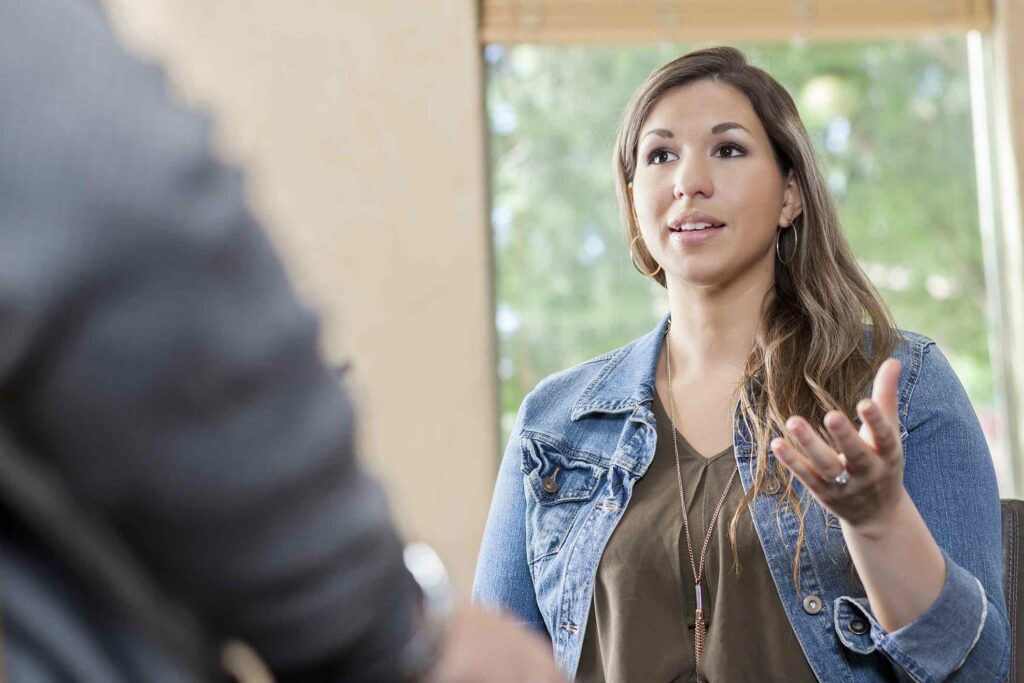Are you feeling overwhelmed by the challenges in your relationships? Do you find yourself struggling to connect with your partner or loved ones? If so, you’re not alone. Relationship issues can be incredibly challenging to navigate, but there is a solution: relational counseling. In this blog post, we’ll explore what relational counseling is all about and how it can help you build stronger connections with those around you. So buckle up and get ready for a deep dive into the world of therapy.
Contents
What is Relational Counseling?

Relational counseling is a form of therapy that emphasizes the importance of relationships in our lives and how they impact our mental health and well-being. This type of therapy is based on the belief that our relationships with others are central to our sense of self and how we view the world.
In this counseling, the therapist works with the client to explore the patterns and dynamics of their relationships, including family, romantic, and platonic relationships. Furthermore, the therapist helps the client identify and understand the impact that these relationships have on their emotions, behaviors, and overall mental health.
The therapist in relational counseling often takes an active role in the therapy process, offering feedback, guidance, and support to the client as they work through their issues. Furthermore, this approach emphasizes the importance of the therapeutic relationship and the collaborative nature of the therapy process.
Key Concepts of Relational Counseling
Relational counseling is a therapy approach that emphasizes the importance of relationships in shaping our experiences, behaviors, and emotions. Some of the key concepts of relational counseling include:
- Relationships: At the heart of relational counseling is the belief that our relationships are central to our sense of self and our mental health. Our relationships with others can shape how we see ourselves and the world around us, and they can impact our emotional and psychological well-being.
- Connection: Furthermore, Connection is another key concept in relational counseling. Therapists who use this approach prioritize building a strong therapeutic relationship with their clients, as they believe that the quality of the therapeutic relationship is essential to the success of the therapy.
- Attachment: Attachment refers to the emotional bond that develops between individuals in close relationships, such as parents and children, romantic partners, and friends. In relational counseling, therapists often explore how early attachment experiences may have shaped their clients’ beliefs and behaviors in relationships.
- Collaboration: This counseling is a collaborative process between the therapist and the client. The therapist takes an active role in the therapy process, offering feedback, guidance, and support to the client as they work through their issues.
- Self-awareness: Furthermore, Relational counseling encourages clients to develop greater self-awareness by exploring their own beliefs, values, and experiences in relationships. This can help clients gain a better understanding of themselves and their patterns of behavior in relationships.
- Empathy: Empathy is the ability to understand and share the feelings of another person. In relational counseling, therapists strive to empathize with their clients and help them develop greater empathy for themselves and others.
Overall, the key concepts of relational counseling emphasize the importance of relationships, connection, collaboration, and self-awareness in promoting mental health and well-being.
What To Expect in a Relational Counseling Session?

In this counseling session, you can expect to have an opportunity to talk about your relationships and explore how they are impacting your mental health and well-being. Here are some things you can expect in a typical relational counseling session:
- Establishing rapport: Your therapist will likely spend some time getting to know you and establishing a rapport. They may ask about your background, your relationships, and what has brought you to counseling.
- Identifying goals: Together, you and your therapist will identify the goals that you hope to achieve through counseling. This may include improving your relationships, developing greater self-awareness, and reducing symptoms of depression or anxiety.
- Exploring relationships: Furthermore, Your therapist will likely ask you to talk about your relationships and how they are impacting your mental health. They may ask about your family relationships, friendships, and romantic relationships.
- Identifying patterns: Furthermore, Through the process of exploring your relationships, your therapist may help you identify patterns of behavior or beliefs that are contributing to your struggles.
- Developing new skills: Your therapist may offer guidance and support in developing new skills or coping strategies to improve your relationships and overall well-being.
- Fostering self-awareness: This counseling emphasizes self-awareness, and your therapist may encourage you to reflect on your feelings, beliefs, and experiences in relationships.
- Providing feedback and support: Throughout the session, your therapist will offer feedback, support, and guidance to help you achieve your goals and improve your relationships.
Pros and Cons of Relational Counseling

While this approach can be effective for some, it’s not right for everyone. Here are some pros and cons of relational counseling to help you decide if it’s right for you.
Pros
- Emphasis on relationships: Relational counseling emphasizes the importance of relationships in shaping our mental health and well-being, and can be particularly helpful for individuals struggling with relationship issues or looking to improve their communication and connection with others.
- Collaborative approach: Relational counseling is a collaborative approach, in which the therapist works with the client to identify goals, explore patterns, and develop new skills or coping strategies.
- Greater self-awareness: Furthermore, Relational counseling encourages self-awareness and reflection, which can help individuals gain a deeper understanding of themselves, their patterns of behavior, and how they relate to others.
- Flexibility: Relational counseling can be adapted to a variety of different therapeutic settings, including individual, couples, and family therapy.
- Research-supported: There is a growing body of research supporting the effectiveness of relational counseling for a range of mental health issues, including depression, anxiety, and relationship difficulties.
Cons
- Not for everyone: Relational counseling may not be the best fit for everyone. Some individuals may prefer more structured or directive approaches therapy.
- Can be time-consuming: Relational counseling often involves a longer-term therapeutic commitment, which may not be feasible or desirable for some individuals.
- Requires a strong therapeutic relationship: Furthermore, The success of relational counseling is heavily dependent on the strength of the therapeutic relationship between the therapist and the client.
- May be emotionally challenging: Relational counseling may involve exploring difficult emotions or past experiences, which can be emotionally challenging for some individuals.
- Limited focus: Furthermore, Relational counseling tends to focus on the role of relationships in shaping our mental health, which may not be the most relevant or helpful approach for individuals with different types of issues.
How to Find a Relational Counsellor?

If you’re interested in finding a relational counselor, here are some steps you can take:
- Ask for recommendations: Ask your friends, family members, or healthcare providers if they can recommend a relational counselor they trust.
- Check with professional organizations: You can also check with professional organizations, such as the American Counseling Association or the International Association for Relational Psychoanalysis and Psychotherapy, to find licensed and certified relational counselors in your area.
- Search online directories: There are many online directories of therapists and counselors, such as Mantracare or Therapymantra, where you can search for relational counselors by location and specialty.
- Contact your insurance provider: If you have health insurance, contact your provider to find out if they cover counseling services and if there are any in-network relational counselors in your area.
- Schedule a consultation: Once you’ve identified a potential relational counselor, schedule a consultation to get a sense of their approach and determine whether you feel comfortable working with them.
Remember that finding the right counselor is a highly personal process, and it may take some time to find someone who is a good fit for you. Furthermore, Don’t be afraid to ask questions and take the time you need to make an informed decision.
Alternatives to Relational Counseling
There are plenty of other counseling approaches available if relational counseling isn’t the right fit for you. Here are a few to consider:
- Cognitive behavioral therapy: This therapy aims to help people identify and change negative thinking patterns and behaviors that are causing them distress.
- Family systems therapy: Furthermore, This therapy focuses on the relationships between family members and how they interact with each other. The goal is to help families improve communication and problem-solving skills.
- Solution-focused brief therapy: This therapy helps people identify their goals and develop a plan to achieve them. It’s short-term, typically lasting just a few sessions.
- Humanistic therapy: This approach emphasizes the importance of self-awareness, growth, and personal development.
Conclusion
In conclusion, relational counseling is an incredibly powerful and effective therapy tool that can be used to help individuals, couples, or families who are struggling with various issues. This type of counseling looks at the underlying relationships between people, rather than focusing simply on the individual’s thoughts and feelings. It takes a holistic approach that considers how different aspects of life interact with one another to create positive outcomes for all involved. With the right counselor by your side, relational counseling could be just what you need to move forward positively in life and make meaningful changes for yourself and your loved ones.
For more information, please contact MantraCare. Relationships are an essential part of human life. It is the connection between people, and it helps us to form social bonds, and understand and empathize with others. If you have any queries regarding Online Relationship Counseling experienced therapists at MantraCare can help: Book a trial therapy session


